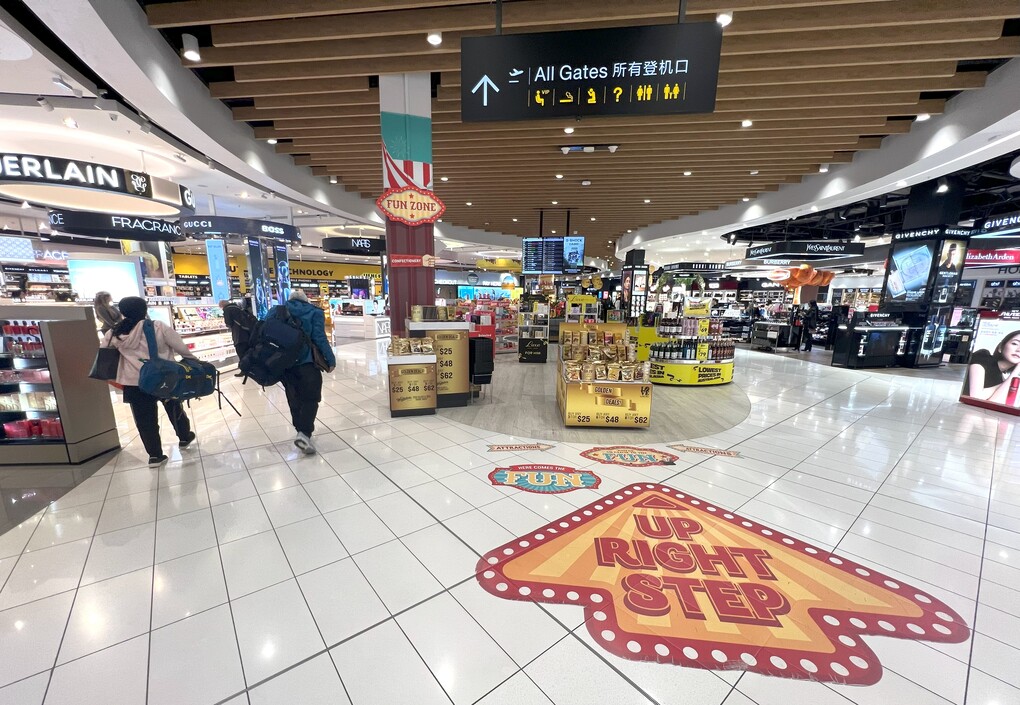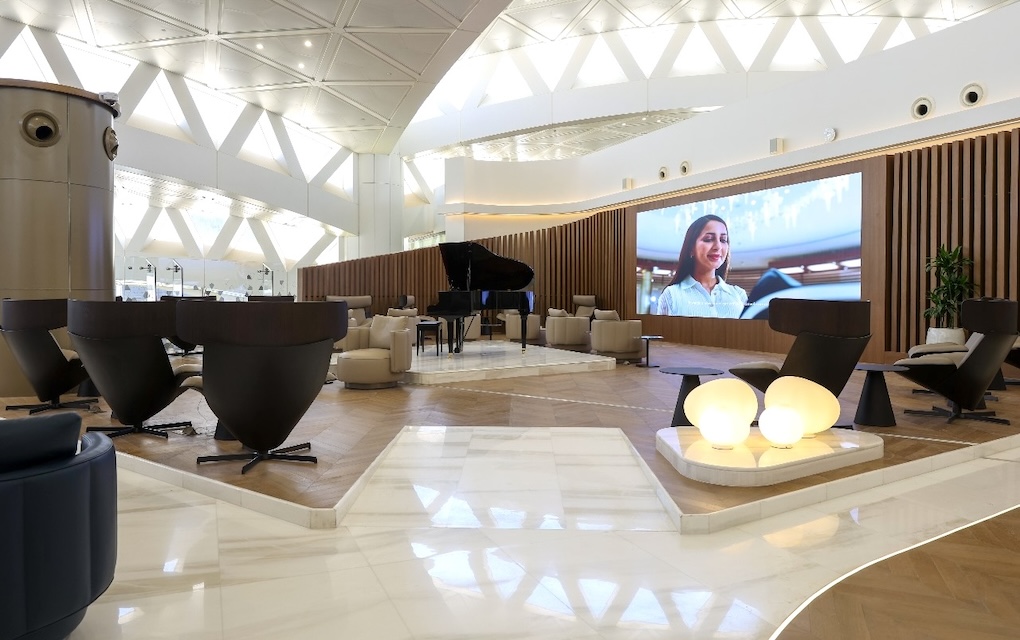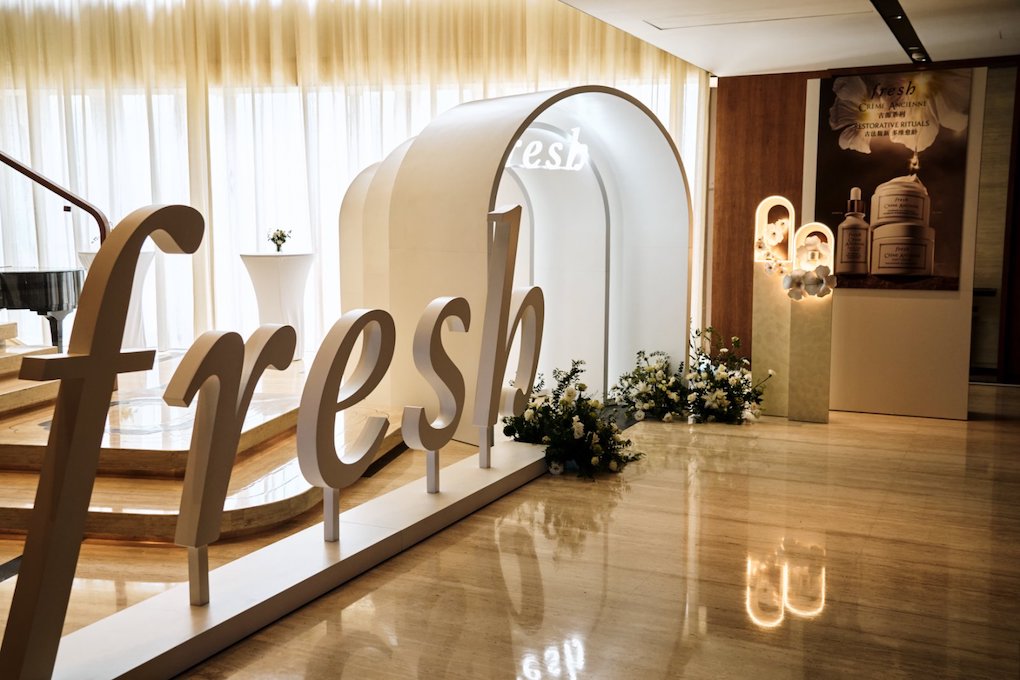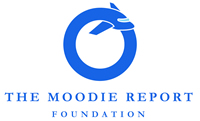 |
UK. The Moodie Report Foundation yesterday presented a cheque for £124,000 (US$202,000) to fund a vital cancer research study into genetic sequencing at the Royal Marsden Hospital in London.
The Royal Marsden is one of the world’s leading cancer research institutes as well as being a specialist cancer hospital. It is also the hospital that treated The Moodie Report Chairman Martin Moodie for stomach cancer in 2010/11, World Duty Free Group Global Head of Category – Food & Souvenirs Fraser Dunlop; Bronte Hogan, the young daughter of PPS Publications owner Paul Hogan (who tragically passed away in March 2011) and other industry figures.
The Moodie Report Foundation, founded in 2012, is a charitable institution dedicated to funding cancer research. The body was funded initially by Martin Moodie and the Wampler Family Trust. Since then it has received generous support from the travel retail industry.
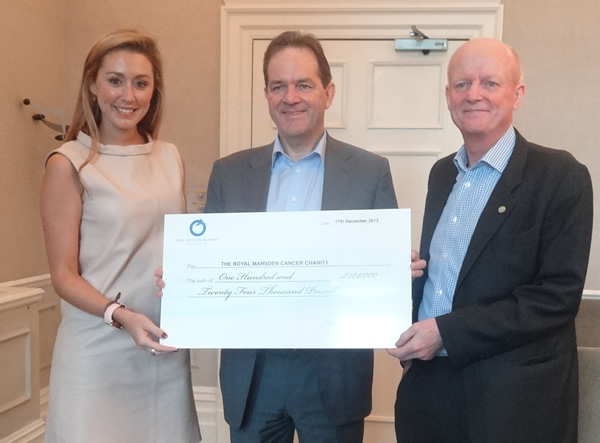 |
Jaclyn Wampler and Martin Moodie present the cheque to Professor David Cunningham at the Royal Marsden Hospital in London |
The cheque was presented by The Moodie Report Chairman Martin Moodie and Moodie International Switzerland President Jaclyn Wampler to Professor David Cunningham, Consultant Medical Oncologist and Head of the Gastrointestinal Unit at The Royal Marsden. He is also Co-Director of Research Integration for the hospital and The Institute of Cancer Research and Chair of the National Cancer Research Institute Upper Gastrointestinal Clinical Studies Group.
The Moodie Report Special Correspondent, Christchurch-born Colleen Morgan, who is now based in Rhodes, Greece, also attended. Colleen’s daughter Lucy was diagnosed with a rare and very serious form of cancer in 2003 at the age of nine. After a long struggle she beat the disease and is now a dynamic and thriving young woman. Colleen and Lucy’s story will be told in a book called “˜Throw me a Smile’ to be published by Martin Moodie in early 2014.
Presenting the cheque, Martin Moodie said: “The work of the Royal Marsden is vital in the battle against cancer. This wonderful institute has saved countless lives and will save many more long into the future thanks not only to the incredible care it gives but the pioneering research into the disease for which it is rightly world famous.
 |
The Royal Marsden in London has saved countless lives threatened by cancer |
“My life was saved by the findings – and subsequent recommended treatment – of earlier research and it is a huge pleasure to be able to help fund such a potentially breakthrough research study.
“The travel retail community has been hugely supportive of our efforts and I would also like to thank all those industry companies and individuals who have given so generously to the Foundation.”
Professor Cunningham said: “The funds raised by the travel retail industry are absolutely vital. One in three lives are affected by cancer and research is the key to increasing both survival rates and the quality of care we can give our patients.” [Look out for this week’s edition of The Moodie Report e-Zine for further comment from Professor Cunningham.]
*ABOUT THE STUDY:
The growth and spread of an individual patient’s cancer is influenced by complex signalling pathways in their cancer cells. Due to advances in cancer research, drugs have been developed that target specific steps in these pathways. However, the molecular characteristics of cancer vary from one patient to another. These molecular differences can determine whether an individual patient will respond to a targeted treatment.
This has led to increased interest in the concept of “˜personalized medicine’ where treatment is tailored to the characteristics of an individual patient’s tumour. Personalised medicine is being increasingly incorporated into clinical practice, e.g. the use of trastuzumab (Herceptin) for patients with HER2 positive gastric or breast cancer, and has led to improvements in patients’ response to treatment and survival.
However, there are challenges to the implementation of personalised medicine. As the number of available targeted drugs increases, it is becoming necessary to screen patients for more and more different molecular characteristics to see if they are suitable for targeted treatments. This can be expensive and time-consuming and is therefore currently mainly performed for well-established drugs or within the context of clinical trials. In addition, many molecular characteristics (such as specific gene mutations) are only seen in a very small percentage of patients.
This means that a large number of patients need to be screened in order to identify a very small number of patients who might benefit from a specific targeted therapy. Therefore, a new, more efficient strategy to determine the molecular characteristics of individual tumours is needed. Recent developments in genetic sequencing techniques have meant that tumours can be molecularly characterised much quicker (and cheaper) than previously and the Royal Marsden believes therefore that this is now a feasible approach.
It says that genetic sequencing to establish the molecular profile of an individual patient’s tumour will facilitate a more personalised approach to cancer treatment. However, the feasibility of this approach needs to be assessed before it can be incorporated into the standard care of patients. This study aims to assess the feasibility of sequencing tumours in real-time to enable future treatment stratification by molecular characteristics.
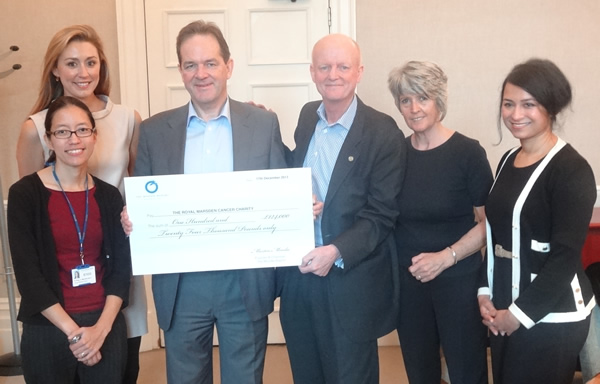 |
The Moodie Report Special Correspondent Colleen Morgan (second from right), whose daughter Lucy successfully fought a rare cancer, was a proud member of The Moodie Report delegation |


